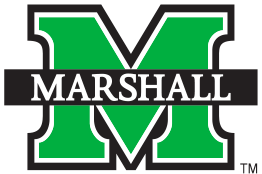Liyah Bady
Listen to the interview:
StoryCorps interview URL: https://archive.storycorps.org/interviews/gg-9/
Project Reflection:
As you know, Metacognitive Thinking, one of the five learning outcomes of FYS, involves reflection. Please reflect on and write about your experience in conducting this Oral History Interview.
a. Process: What did you learn about the technical parts of conducting an oral history interview? What aspect did you find most challenging? What aspect was most enjoyable?
When it comes to the technical aspect of this interview, I learned a lot about the preparation that is absolutely necessary. For example, the research that the class did, such as examining other oral histories or reading Ask More to expand our understanding of questions, was a lot more tedious then I expected. With that in mind, I thoroughly enjoyed the examination of other interviews as we learned so much in an enjoyable manner; I found using the book and formulating those questions was the most challenging as it forced us to not only understand what we had learned but to accurately apply it.
b. Content: What did you learn about the topic that you didn’t already know?
This topic was one I thought I was thoroughly knowledgeable prior to the interview. However, while conducting the interview itself, I began to learn a lot about what goes on behind the scenes to organize an event like this; people will see the demonstration and neglect to appreciate the hard work it took to put it together. So, ultimately I learned about the true heart and emotion that goes beyond the protest and actually about the cause.
c. The experience overall: In previous modules, you learned about oral history. You had the chance to gain an understanding of what oral history is and what it is designed to do. You read about interview tips and best practices. And, you had the opportunity to examine closely one audio and/or video oral history and evaluate it. How did actually conducting an oral history interview feel? Share your reactions:
The person I chose to interview was a close family member, so conducting this interview felt extremely comfortable. In fact, there were a few occasions I had to remind myself to remain professional and focused on the that task at hand. Ultimately, I am glad that I chose the person I did because I believe it took some of the pressure off of both me and the interviewee; I remember my observation of an interview where the awkwardness and pressure seemed to overcome the interview, and I am glad I was able to overcome that.
d. Inquiry Based Thinking: While this reflection assignment in particular emphasizes metacognitive thinking, the Oral History Interview Final project mainly requires Inquiry Based Thinking. Based on the definition of Inquiry Based thinking, discuss how you think this assignment meets (or not) this learning outcome.
I think this final project hits the mark of applying Inquiry Based thinking, especially in the area of focused questions. Again, I chose to interview someone close to me, meaning I already knew their mannerisms and how they might respond to certain questions. Therefore, finding these critical questions that would get my interviewee out of their comfort zone was a challenge for me. I had no choice to lean heavily on this inquiry-based thinking if I wanted a great interview. From those questions, analyzing that data and formulated a hypothesis became easy, as now I knew the proper approach to take.
DEFINITION: Inquiry Based Thinking – Students will formulate focused questions and hypotheses, evaluate existing knowledge, collect and analyze data, and draw justifiable conclusions.
e. Suggestions for improvement: What recommendations do you have? If your instructor uses this assignment in future FYS sections, what changes would you recommend?
In the future, I would recommend the use of Frank Sesnos’ book Ask More. When it came to those critical questions, this book is extremely helpful and helps you formulate maybe a more generic question into a question and forces your interviewee to take a step back and really think.
f. Finally, talk to a future FYS student about this project: What would you like to tell them about this assignment? What tips and/or advice would you offer a future FYS student as s/he begins examining oral histories and prepares to conduct one?
Some advice I would give is to know your interviewee and the stances they are bound to take; basically, do your research. It might seem like getting the answers without asking the questions, but it will do the opposite. Doing your research allows you to better approach how and what questions you ask; it will allow your questions to be less generic and more specific towards that topic and individual.

